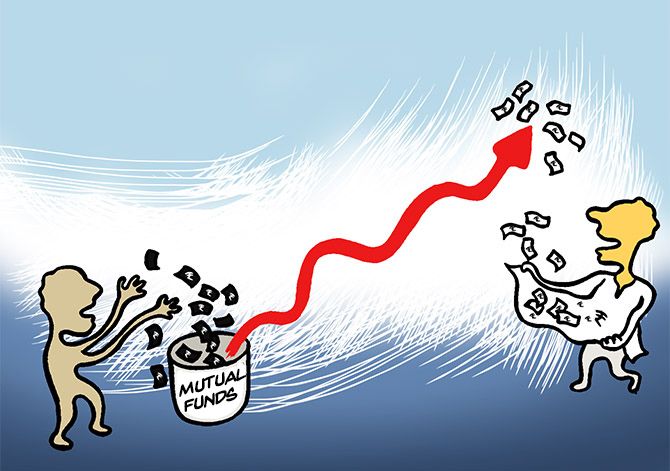Multi-cap funds are best suited to exploit the present market scenario as they are free to invest across all market capitalisations and sectors, says Naveen Kukreja, CEO and co-founder, Paisabazaar.com.
 ]
]
The recent steep correction in the equity markets has led to some investors redeeming their investments in panic.
Many are contemplating discontinuing their SIPs in equity mutual funds.
First, your decision to redeem should be based only on you reaching the financial goal the investment was aimed for.
For instance, an investment made for your retirement, which is 15 to 20 years away, should not be touched because of the current market situation.
Second, the correction has made equity valuations extremely attractive and instead of redeeming, investors should look to increase their investments in equity mutual funds in the current scenario.
Investing in the current bearish market allows you to buy more units at lower NAVs, reducing your average investment cost.
Since these investments are being made for the long term, it will help you create larger corpus and reach your financial goals sooner.
Hence, investors should overcome the emotion of fear and avoid panic-driven mutual fund redemptions.
You should continue with your existing SIPs and if possible, top up the existing one through lumpsum investments in a staggered manner with an investment horizon of at least 5 years.
This will average your investment cost and create a bigger corpus as and when the markets rebound.
For fresh investments in the current situation, investors should look at the following two type of funds, for long-term benefits:
Multi-cap funds
One should invest 80% of their investible amount in multi-cap funds currently.
Multi-cap funds are best suited to exploit the present market scenario as they are free to invest across all market capitalisations and sectors, according to changing market conditions and valuations without any SEBI-imposed caps.
Investors may consider the direct plans of any of these three funds -- Invesco India Contra Fund, Axis Multicap Fund, IDFC Multicap and ICICI Prudential Mutlicap Fund --- for multi-cap investments.
Those who need to reduce their tax liability under Section 80C can consider ELSS funds.
These funds come with a lock-in period of 3 years and follow the multi-cap strategy.
For tax-saving, investors should consider any of these four ELSS funds -- IDFC Tax Advantage, Invesco India Tax Fund, Mirae Asset Tax Saver and Axis Long Term Equity Fund.
Index funds
The remaining 20% of the investible amount can be made in index funds as they will ensure benefits from steep market rallies post-correction, in case their actively managed multi-cap funds fail to make the most from the falling market.
For exposure to Index Funds, investors may consider any of these funds --- Nippon India ETF NV20, IDFC Sensex ETF, ICICI Prudential NV 20 ETF and Invesco India Nifty ETF.
While following this investment strategy, investors should make sure to not touch their emergency funds or financial allocations made for short term goals.
Avoid investing your entire surplus in just one or two tranches and invest in a staggered manner over a period of time.
Since it is always difficult to predict the duration and bottom of a bearish market phase, having surplus cash would allow you to exploit the market conditions at further lower levels, in case it falls more.
Naveen Kukreja can be contacted at ga@rediff-inc.com











